 Petzlover
Petzlover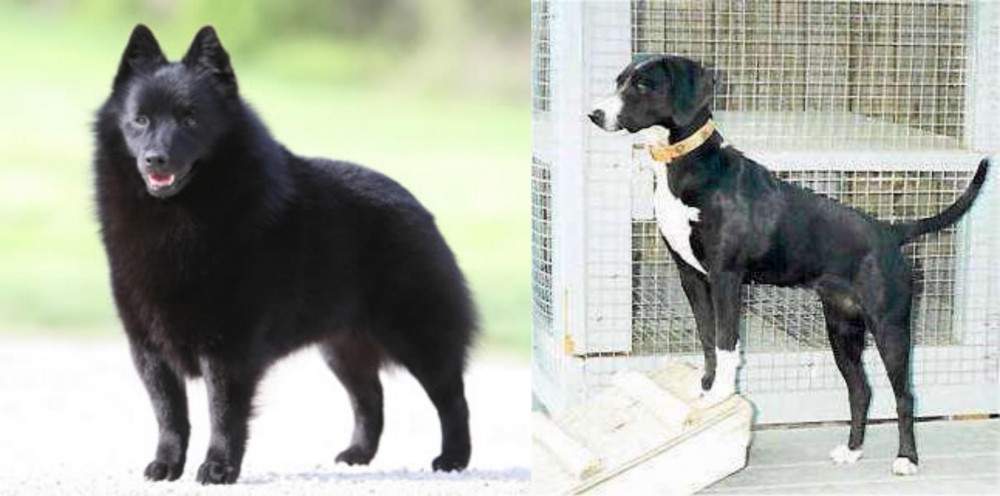 Schipperke is originated from Belgium but Stephens Stock is originated from United States. Schipperke may grow 17 cm / 6 inches shorter than Stephens Stock. Schipperke may weigh 49 kg / 108 pounds lesser than Stephens Stock. Both Schipperke and Stephens Stock has almost same life span. Both Schipperke and Stephens Stock has almost same litter size. Both Schipperke and Stephens Stock requires Low Maintenance.
Schipperke is originated from Belgium but Stephens Stock is originated from United States. Schipperke may grow 17 cm / 6 inches shorter than Stephens Stock. Schipperke may weigh 49 kg / 108 pounds lesser than Stephens Stock. Both Schipperke and Stephens Stock has almost same life span. Both Schipperke and Stephens Stock has almost same litter size. Both Schipperke and Stephens Stock requires Low Maintenance.
 The Schipperke is a small dog which hails from Belguim and where he is known as a Spitz.
The Schipperke is a small dog which hails from Belguim and where he is known as a Spitz.
There are however different theories regarding the Schipperke’s origin. It was however during the late 1800s, that Belgian Schipperke fanciers set a standard for the breed.
It was in 1888 that the first Schipperke was imported to the United States and a specialty club for the breed founded in 1905.
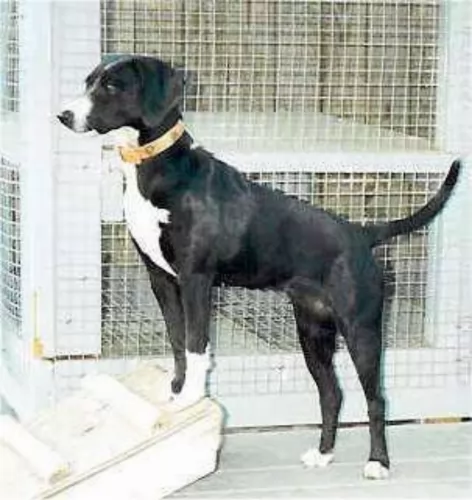 The Stephens Stock is a member if the Cur dog breeds. They are a scent hound bred in southeastern Kentucky by the Stephen’s family. For generations the dogs were simply known as the “little black dog”. The Cur breeds are dogs with a mixture of ancestry and the Stephens Cur is no different. However, the name Cur now means a working dog from the South in the United States. They were known as hunting and guard dogs, chasing wild boar, squirrel and raccoon. They were also called the Mountain Curs throughout Kentucky, Tennessee and Virginia.
The Stephens Stock is a member if the Cur dog breeds. They are a scent hound bred in southeastern Kentucky by the Stephen’s family. For generations the dogs were simply known as the “little black dog”. The Cur breeds are dogs with a mixture of ancestry and the Stephens Cur is no different. However, the name Cur now means a working dog from the South in the United States. They were known as hunting and guard dogs, chasing wild boar, squirrel and raccoon. They were also called the Mountain Curs throughout Kentucky, Tennessee and Virginia.
These mountain working dogs came close to extinction by the 1940’s but four separate breeders set out to save the Mountain Curs. They were the founders of the Mountain Cur Club and involved Woody Huntsman of Kentucky, Carl McConnel of Virginia, Dewey Ledbetter of Virginia and of course Hugh Stephens of Kentucky. Later the name of the club was changed to the Original Mountain Cur Breeders Association or OMCBA. The Mountain View Cur, the Treeing Cur and the Stephens Stock Cur were the results of their efforts.
In the 1970’s Stephen’s decided that his Cur was different from the original Mountain Curs and should be a separate breed. He formed the Stephen’s Breeders Association and the breed was recognized as distinct from other Curs. However, it was not recognized by the UKC (United Kennel Club) until 1998.
 This little Belgian dog stands at between 25 and 33cm in height and weighs between 3 and 9kg.
This little Belgian dog stands at between 25 and 33cm in height and weighs between 3 and 9kg.
The double coat of the dog is fairly short, but thick and it comes in a range of colors, but always solid, from chocolate to apricot to black.
A typical characteristic of his is the longer-haired ruff around his neck. He also has this longer hair around the hind legs. He has sharp, erect ears and the tail is a natural bobtail or long. Most people choose to have the tail docked.
These little dogs are no pushover. He is stubborn, strong-willed and confident. They are lively, intelligent, curious and energetic and will require plenty of exercise.
Small though he is, he will certainly need training and socialization, otherwise he just goes his own way. Training him will ensure he is obedient and not so strong-willed. They get on well with children, but they tend to be aggressive with other dogs that they haven’t grown up with.
Bring him up the right way and he makes a splendid pet.
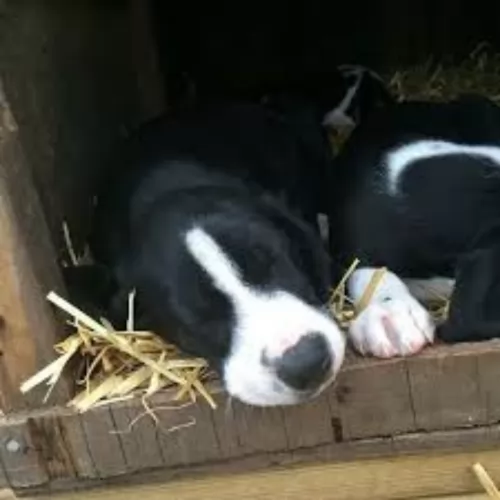 The Stephens Stock Cur is a breed of medium size, dark dogs – either very dark grey or black. Their heads are domed, and the muzzle is short with dark eyes. The breed’s chest is broad and deep with a neck of medium length and either a rough or smooth coat. They are smaller than the other Curs like the Black Mouth Cur or the Mountain View Cur.
The Stephens Stock Cur is a breed of medium size, dark dogs – either very dark grey or black. Their heads are domed, and the muzzle is short with dark eyes. The breed’s chest is broad and deep with a neck of medium length and either a rough or smooth coat. They are smaller than the other Curs like the Black Mouth Cur or the Mountain View Cur.
They are strong and capable of treeing their prey. Their body is longer than it is high, and they have powerful and long legs. Their appearance is sleek and elegant. The nose is dark and square, and their stance is alert and that of a watchdog. This is an athletic hunting dog that is aggressive in the field and chilled at home.
 With his bright little face, the Schipperke dog is a surprising dog, being fearless, confident, protective and devoted – everything people looking for in an excellent pet want.
With his bright little face, the Schipperke dog is a surprising dog, being fearless, confident, protective and devoted – everything people looking for in an excellent pet want.
His small size makes him able to slot into life in the city or the countryside. He is also looked upon as low maintenance. Add to this the fact that he is intelligent too. He is a feisty dog, and that’s why we say he is surprising because while he can be your sweet companion dog, he can turn into a robust, feisty, daring little panther. He’s got everything going for him to make you a splendid pet.
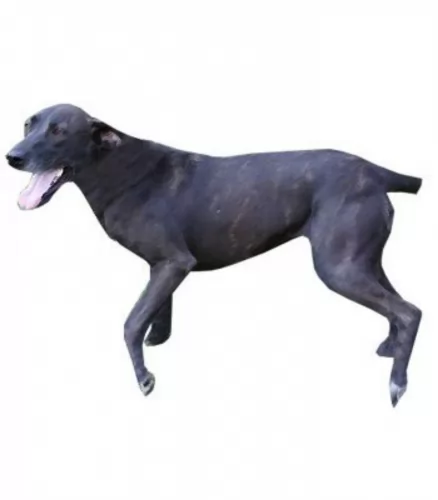 1. Children friendliness - They are tenacious on the hunt but once at home they love children.
1. Children friendliness - They are tenacious on the hunt but once at home they love children.
3.Adaptability They are adaptable if you can get them the exercise, they need every day. They won’t do well in an apartment without going to play and run somewhere else every day.
 The Schipperke has no real health problems that he specifically gets, and he can live to be 13 years or older.
The Schipperke has no real health problems that he specifically gets, and he can live to be 13 years or older.
Over-feeding, bad food choices and lack of exercise are going to shorten the lifespan of this dog. Some dog illnesses to be aware of with the Schipperke is cancer, bloat, epilepsy, dental problems and luxating patella.
This is a condition where the knee cap of the dog moves out of its natural position. The patella moving out of the normal groove of the thigh bone can be because of genetic or traumatic reasons.
The symptoms of luxating patella include limping, skipping along as well as an abnormal sitting posture. Arthritis can also set in. Strangely, many small dogs live all their lives with luxating patella and they live like that free of pain. However for many other dogs it can mean pain and it can require surgery.
 The Stephens Stock Cur is a fairly healthy breed, fairly isolated in the hills and mountains of Kentucky and Tennessee. They are prone to a few health conditions but there are no genetic and breed specific issues.
The Stephens Stock Cur is a fairly healthy breed, fairly isolated in the hills and mountains of Kentucky and Tennessee. They are prone to a few health conditions but there are no genetic and breed specific issues.
• Ear and Eye Infections. Keep them clean and keep debris out of both ears and eyes after hunting.
 Dry kibble is always a good choice for dogs as its helps to keep the dog’s teeth clean. You want to make sure you buy one of the best quality foods, full of minerals and vitamins as opposed to fillers, colorants and preservatives. The food you give your Schipperke can have a huge impact on his health.
Dry kibble is always a good choice for dogs as its helps to keep the dog’s teeth clean. You want to make sure you buy one of the best quality foods, full of minerals and vitamins as opposed to fillers, colorants and preservatives. The food you give your Schipperke can have a huge impact on his health.
Your puppy will require 4 meals a day but later this becomes 2 bowls of food. To add some variety to your pet’s diet, feed him some home made food occasionally which can be added to his dry kibble twice a week.
Boiled chicken, brown rice or pasta and spinach, sweet potatoes and carrots are a healthy choice for your Schipperke.
Try and include some raw meat into the diet as this can help in fighting off horrible skin diseases. Make sure he has constant access to fresh, cool water.
Ensure regular vet checks for your dog, particularly when he is showing signs of being sick.
Check your pet for ticks and fleas. Parasites can be very bad for your pet’s health. Your dog will need all his vaccines to stave off deadly canine illnesses.
Brush your Schipperke twice a week to make sure you get rid of loose hairs. A Schipperke doesn’t shed a lot.
Keep his nails trimmed. If you are unsure on how to do this, professional groomers can do this for you.
Ears and eyes should also be checked.
He’s an energetic little dog so make sure that he gets lot of excellent forms of exercise from walking to hikes to ball games, frisbee – you name it, you won’t tire him out easily.
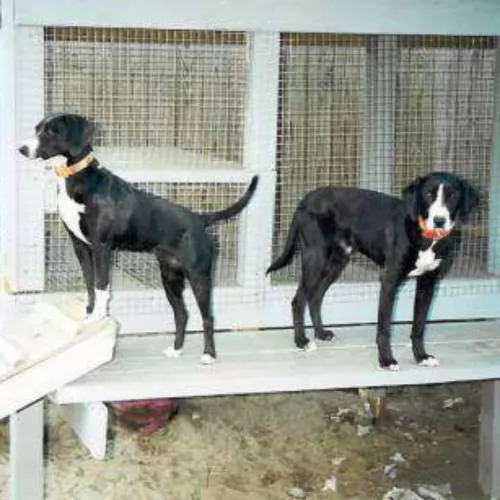 1.Feeding the puppy -Feed puppies a quality food desired for medium breed, high energy dogs. Puppies should eat 3 times a day about a total of 2 cups.
1.Feeding the puppy -Feed puppies a quality food desired for medium breed, high energy dogs. Puppies should eat 3 times a day about a total of 2 cups.
2.Feeding the adult Feed a high quality dog food with plenty of protein and designed for medium size dogs. Feed a total of 3 cups over 2 meals a day.
4. Games and Exercises – This is a very high energy treeing hunting dog with remarkable speed and agility. They need exercise – both physical and mental. One walk a day will not do it for these dogs. Have a fenced in yard or take them to organized activities like field trials, agility, flyball, hunting, search and rescue or barn hunt. They love to hunt with their people.